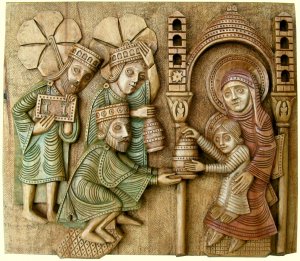The committee, after reviewing these "Observations," allowed in general the possibility that if Orthodox parishes, composed of former Anglicans, were organized in America, they might be allowed, at their desire, to perform their worship according to the "Book of Common Prayer," but only on condition that the following corrections were made in the spirit of the Orthodox Church. On the one hand everything must be removed from the Book that bears a clearly non-Orthodox character—the Thirty-nine Articles of the Anglican Confession, the Catechism with its protestant teaching about the sacraments, the Filioque, the idea of the sufficiency of the Holy Scriptures as the sole source of the teaching of the Faith, etc. On the other hand, there must be inserted into the text of the prayers and rites contained in the Book those Orthodox beliefs which it is essentially necessary to profess in Orthodox worship—into the rite of the Liturgy, the profession of belief in the change of the Holy Gifts into the Body and Blood of Christ, and of belief in the sacrificial significance of the Eucharist; into the rite of ordination ([khirotonii]), the belief in the divine establishment of the ministry with its distinction of degrees, and the recognition of the distinctive right of the priest to offer the bloodless sacrifice. Into all the services in general prayers must be inserted addressed [sic] to the Blessed Mother of God, to Angels and Saints, with the glorification and invocation of them (direct), also prayers for the dead (especially in the Liturgy and the Burial Service). There must be included in liturgical practice, and put into the Book, the missing rites for the sacraments of penance, oil-anointing and unction, and the rite of consecration of churches (as distinct from the consecration of a house of prayer); and finally there must be introduced the cult of sacred images. But since the detailed changes in the "Book of Prayers," and, generally speaking, in Anglican liturgical practice together with the compilation of new prayers and even of entire rites can be carried out only on the spot, in America, in correspondence with existing demands and conditions, it is found desirable to send the "Observations" themselves to the Right Rev. Tikhon, the American Bishop. They will thus serve in the negotiations as materials for the determination in detail of the conditions on which Anglicans disposed to Orthodoxy can be received. As regards the reception of clergy from Anglicanism the committee has proposed (pending a final judgment of the question by the Church) to offer those who join a new conditional ordination.

